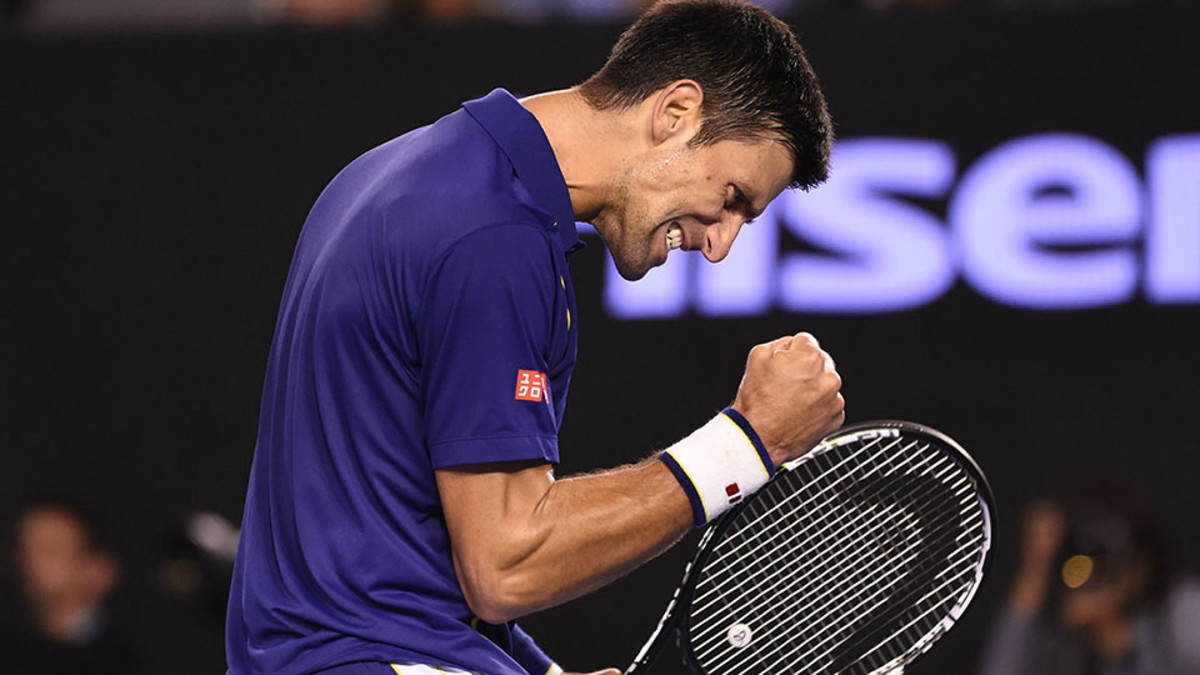How mental coaching helps the pros manage emotions
Not every point in tennis holds the same weight. In basketball, football—most sports, in fact—every point or run harbors the same value, you just add them up. Tennis, though, has more pressure points. Game points. Set points. Match points. Championship points. Win a set point and you may have just earned half of all you needed to win the match.
“That is an enormous swing on one point,” says Allen Fox, former pro player and author of Tennis: Winning the Mental Match. “It doesn't happen in other sports. It would be the same thing, if in basketball, you said after every five minutes the next basket counts 10 points. Gee, that is a big swing. In tennis, all or nothing swings increase the pressure so players have to be particularly disciplined to handle choking.”
Dealing with that pressure while on the court in a virtual island of your own thoughts requires mental training as much as physical training.
Post-Australian Open Mailbag: Assessing performances in Melbourne
“The best coaches are all very good psychologists,” Fox says. “That is most of their job, controlling the player’s emotions. The game is extremely stressful. You can’t relax for a second and so that’s very difficult to maintain.”
Maintaining elite play requires mental care. “What the players are doing out there, most of the time between points, is basically controlling their emotions,” Fox says.
Justin Gimelstob, a former pro turned tennis commentator, says that keeping your mind free enough to focus on the things you can control, the important aspects of a match, represents ingredients for success.
“Like anything, you develop habits, you develop skills and exercises,” Gimelstob says. “It is something you have to commit to understating, commit to growing. The skill set to deal with high-pressure situations, that is a real skill, that is a real significant part of being successful as an athlete.”
Fox, a former coach at Pepperdine, says managing stress means keeping players rational. “These great pros are not normal human beings, by the way,” he says. “They have much greater control over their emotions.” Instead of letting their emotions drive their logic system, their logic system controls emotions. There’s no room for discouragement or anger. “None of the normal emotions are allowable on the tennis court,” Fox says. “The emotions all have to be purposeful. The great pros use their emotions to play better.”
The key to on-court control starts off the court, away from stressful situations. Fox says quality coaches or sports psychologists—more art than engineer—give players key axioms to help understand what stress does to their logic system. Fox cites Roger Federer as someone who quickly learned this power. “Federer had a bad temper, a bad head in the early days,” Fox says. “He learned by about 19 or 20 you have to discipline the emotion, you can’t jet let them go. [Rafael] Nadal knew that apparently right away at 17. Someone like [Ivan] Lendl learned it later and then got great.”
A first rule for players, according to Fox, who says coaching is 90% mental and 10% strokes, is to start with no emotional reaction to the outcome of any point. Not reacting one way or the other lets the circumstance pass right over you. If decided upon beforehand, the control becomes just another tool for a tennis player. That said, Fox encourages the judicious breaking of his first axiom, allowing a purposeful fist pump to help mentally encourage them.
“What the good ones do is control emotions, control it and then stimulate themselves in critical situations,” Fox says. “What that excitement does is give you a shot of adrenaline and makes you feel good momentarily, which is particularly useful near the end of a set when you might be getting cautious.” The great pros, then, use celebration not because they've lost control of themselves, but because they chose to. To let those emotions wander over the course of a multi-hour match results in an up-and-down mentality which can be even more physically and mentally exhausting than it needs to be.
Gimelstob says different players have varied priorities, whether relaxing enough to stay present, relaxing to stay aggressive in big moments or dealing with adversity. All players have different styles, but control remains the goal.
Mental abilities are more choice than practice, Fox says. Once decided upon it becomes a fairly easy goal to achieve.
But pressure never leaves. No matter how much you want to rid your mind of emotion, trying not to acknowledge just how important some points are does not come easy. “Oh, God, I got to win this point,” Fox says. “I’ll win Wimbledon if I win this next point. If you think like that you are dead. You are trying to ride over the points, but it never totally leaves your mind.”
Nadal looks to defend title at Argentina Open
That’s where Fox encourages techniques to assuage the stress. He suggests focusing narrowly on what’s needed in the next few seconds. “You don’t want the big picture at that point,” he says. “But of course you can’t get rid of it, you can’t say don’t think about the fact that it is match point, because you are going to think about it. You focus in order to stop yourself.”
The mind, research says, can only contain one major thought in the forefront at a time. So by focusing that thought on a ball toss or stroke motion, for example, you occupy the space with useful information.
“You got to give the player something other than the fact that if he misses this shot, he loses the match,” Fox says. “You better not miss.”
Those weighty points grow heavy on the mind. Emotion, a powerful tool, can shape your strategy. But players in full mental control have a different perspective. And often a different outcome.
Tim Newcomb covers stadiums, sneakers and training for Sports Illustrated. Follow him on Twitter at @tdnewcomb.








